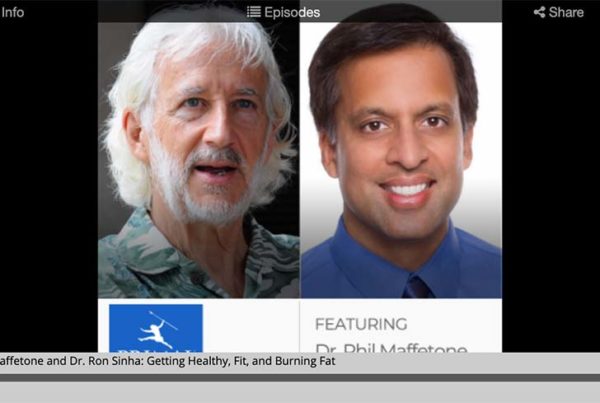
Eating the right meals and snacks can reduce hunger while helping you cut body fat and hit your health target
We all face hunger. If it’s there too often, appears soon after a meal or snack, or during the night, or if you avoid breakfast because it makes you too hungry during the day, it’s a problem.
A healthy meal or snack should satisfy hunger for two, three or more hours.
There are many physical, chemical and mental-emotional factors that control hunger, which is the signal the brain sends to your conscious mind telling you to eat. And turning off this sensation involves just as many factors. The lack of frequent hunger is a hallmark of health. (Illness is often associated with the lack of desire to eat — a feeling that should be heeded, and many diseases are associated with lack of hunger.)
Physical factors that influence hunger include the muscles in the stomach that distend and squeeze food out into the small intestines. Even the thought of food, including seeing, smelling or hearing it, starts an avalanche of chemicals, including a dozen or more hormones, which also regulate hunger. Because the brain’s hypothalamus plays a key role in hunger, mental or emotional stresses can manipulate the many mechanisms that control it.
When things go wrong in the gut or brain, such as mixing food and stress, these two parts of the body that regularly work closely together can develop an imbalance between being too hungry or not sufficiently satiated. The result can be disordered eating, impaired metabolism, body-fat accumulation, low energy, and overall poor human performance. Using hunger as guide can help you determine which foods best match your body, and when to eat, for improved overall health.
Where is Hunger?
Hunger can be described as originating from two places — both in the brain, and the gut itself, especially the stomach. Of course, blood sugar significantly influences the sensation of hunger along with various hormones, especially insulin. In addition, the body’s fat cells send signals to the brain, playing a role in the feeling of hunger and satiation.
The Hunger Hormone
Produced in the stomach, Ghrelin is the hormone that leads us to feel hunger, with levels elevating after periods of an empty stomach. Ghrelin is significantly increased or decreased, along with hunger and the lack of it, by the macronutrients consumed. For example, the hunger hormone is reduced with more fat and protein in the meal, and increased with more carbohydrates.
Satiation is the feeling of satisfaction or fullness, leading to reduced hunger. This is the result of numerous gut hormones, including those from the pancreas, along with leptin from stored fat. All are released after an appropriate meal.
Those with more body fat have higher amounts of the hunger hormone, with lower levels of those that produce satiety.
Food Factors
Along with gut hormones, carbohydrate intake releases another important hormone that controls hunger — insulin. The more refined the carbohydrate food, the higher the glycemic index and the more insulin is released. The result is much of the carbohydrate consumed turns to fat and is stored, and insulin reduces the body’s ability to burn stored body fat for energy.
Protein can help hunger too, especially in relation to burning off body fat. Studies show that meat-based diets containing 25 to 30 percent protein can result in significant weight loss. Another study demonstrated that 20 grams of supplemental whey protein taken three times daily significantly helped exercising individuals lose weight and body fat.
Fat helps lead to the satisfying feeling after meals. This is especially true of MCTs (medium chain triglycerides that are high in coconut oil). It may simply be that fat reduces hunger by keeping food in the stomach longer.
Fat is also the tastiest of macronutrients. Taste plays a role in controlling hunger too — those who don’t taste their food well have more hunger hormones.
Chewing
In relation to taste, chewing plays an important role in balancing hormones that control hunger. Essentially, the increased number of chews in each bite can reduce hunger.
In addition, how we eat is important too. Eating quickly is associated with reduced satiety and increased body weight, while eating slower has been shown to favor burning off more body fat.
Two other factors also influence our hunger.
The time of day when meals are eaten is important. Eating at a time when the internal circadian clock promotes sleep — starting in the early evening and through the night — can add to stored body fat. If we’re hungry all evening or wake up during the night hungry, obviously hunger balance is disturbed.
Aerobic exercise can help balance hunger and satiety hormones because this type of workout is associated with increased fat-burning. But if you are ravenous after a workout, it may be that it’s not aerobic, but anaerobic.
Perhaps the most important aspect of hunger is that it can help guide you to make the most appropriate lifestyle changes that lead to better health. Reducing hunger can serve as an important goal, assuming adequate nutrient intake and not at the expense of it. Those who are hungry after a meal, in between meals, late evening or during the night must seek the problem that’s causing it. This may be due to poor food quality (refined products), low fat and or protein, infrequent eating, and eating too late in the day or night.
Dr. Phil Maffetone








